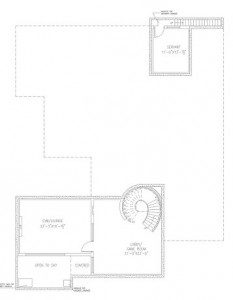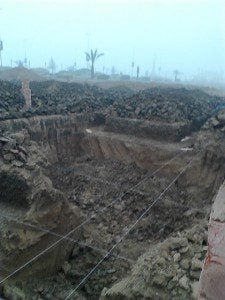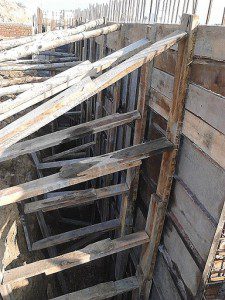Basement used to serve as a storage space in houses once, but today interior designers in Lahore have transformed it into an inviting area. Now homeowners are using basements as a workplace, kids play area, entertainment room and even bedrooms. Transforming basement into a warm and alluring area may seem like a daunting task but with effective design and quality construction, you can accomplish this task.
Here the steps involved in finishing a basement
1st Stage: The Layout

Once you have decided to take the leap in finish the basement, dwell on the function and layout of the space. If you are building it for sheer entertainment, then make sure it should be close to natural lighting and very open in order to evade dark and restricted basement feel. Bear in mind wherever you choose to place your TV, ensure that it isn’t an area that will create too much scowl.

Don’t forget to spare some space for the fireplace and other usual home units required in the basement. In case, you intend to use your basement as a living area, then opt for a design that allows for an egress window. This large window provides you an escape route in the event of an emergency. Or you can opt for this contemporary walk-out sunken basement design by AmerAdnan Associates to enjoy sunlight and privacy during winters.

But before that don’t forget to check local township codes and permits on finishing a basement. Since every society has its own bye laws that residents have to obey. For instance, Defence Housing Authority (DHA) Lahore binds property owners to leave some space on the front and sides of the dwelling when constructing new home in the society.
Checkout DHA’s construction bye laws in detail by clicking here.
2nd Stage: The Damp Proof Course (DPC)

Basements are prone to moisture, being the closest area to the ground. So assess how moisture is affecting the abodes near your construction site. It would be best to bind your architect in Pakistan to use damp proofing (DPC) in construction and control moisture to prevent rising damp.

3rd Stage: The Skeleton


Once your construction company end up building the retaining walls, then it will create the skeleton of the basement. It’s a crucial stage of construction, where you have to pay attention to the ceiling height of your basement. Because if it’s not high enough, you have to exhaust more cash and time to re-excavate the floor and cement it again.

In addition, when framing around the stairs of your basement, think about how you can use the space below the stairs for storage and other purposes. For instance, you can set up your home office under your stairs, build wardrobe, cabinets and or shelving to keep your clothing, books, etc. or simply place your iron stand under it.

To Be Continue…